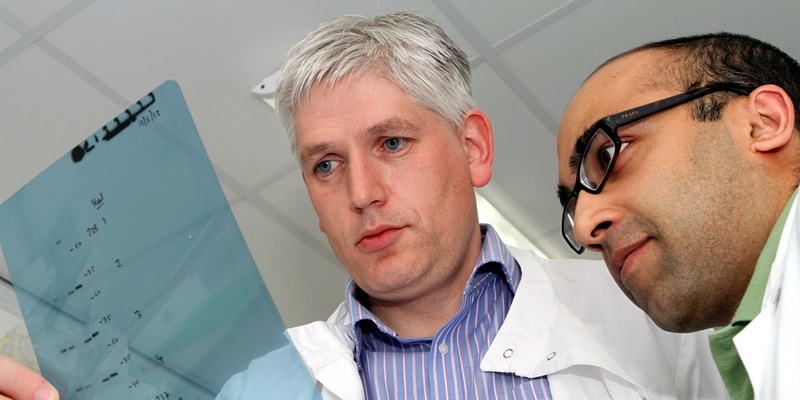Dundee University scientists have made a major breakthrough that could stop devastating Parkinson’s disease ”in its tracks”.
The findings have been unveiled following a decade of dedicated research at the Medical Research Council (MRC) Protein Phosphorylation Unit at the university.
The scientists have discovered a molecular ”on-off” switch for Parkinson’s that acts to protect the brain from developing the killer disease.
The research has helped scientists understand how genetic mutations in a gene called PINK1 lead to Parkinson’s in patients as young as eight and could eventually lead to new ways to diagnose and treat the condition.
The breakthrough has come after a decade of intensive research at the MRC into the PINK1 enzyme (which is made by the PINK1 gene). Scientists already knew that the job of some proteins inside cells is to switch other important proteins on or off. Understanding how these proteins work and which proteins they target could be the key to why nerve cells die in Parkinson’s, and how they can be saved.
Now the Dundee team has found that PINK1 switches on a protein called Parkin, whose main job is to keep cells healthy by removing damaged proteins. Mutations in the gene that makes Parkin can also cause inherited forms of Parkinson’s in younger patients.
The team was led jointly by Dr Miratul Muqit and Professor Dario Alessi at the MRC.
”Parkinson’s is a devastating degenerative brain disorder and currently we have no drugs in the clinic that can cure or slow the disease down,” said Dr Muqit, a Wellcome Trust clinician scientist in the Dundee unit.
”Over the last decade many genes have been linked to Parkinson’s but a major roadblock has been determining the function of these genes in the brain and how the mutations lead to brain degeneration.
”Our work suggests this pathway can’t be switched on in Parkinson’s patients with genetic mutations in PINK1 or Parkin. More research will be needed to see whether this also happens in Parkinson’s patients who do not carry these mutations.”
Professor Alessi, director of the MRC Protein Phosphorylation Unit, said: ”Now that we have identified this pathway, the key next step will be to identify the nature of these damaged proteins that are normally removed by Parkin.
”Although further studies are required, our findings also suggest that drugs that switch this pathway on could be used to treat Parkinson’s.”
Parkinson’s UK director of research and innovation Dr Kieran Breen said: ”We are now beginning to piece together this complex genetic puzzle which will pave the way towards new and better treatments for Parkinson’s.
”Current treatments only mask symptoms by boosting the levels of dopamine in the brain and they cannot slow or stop the development of the condition.
”This breakthrough offers real hope for developing treatments that tackle the root causes of Parkinson’s by targeting the genes involved in the condition, which could have the potential for halting Parkinson’s in its tracks,” added Dr Breen.
The research was funded by the Medical Research Council, Wellcome Trust, Parkinson’s UK, the J. Macdonald Menzies Charitable Trust and the Michael J. Fox Foundation.
The research into the disease is published in the latest edition of the journal Open Biology.
The paper was co-authored with Dr Helen Walden from Cancer Research UK’s London Research Institute.
The latest figures show that 127,000 people in the UK have Parkinson’s, a progressive neurological condition for which there is currently no cure.
There are around 90 ground-breaking research projects worth £15 million being funded across the UK.
